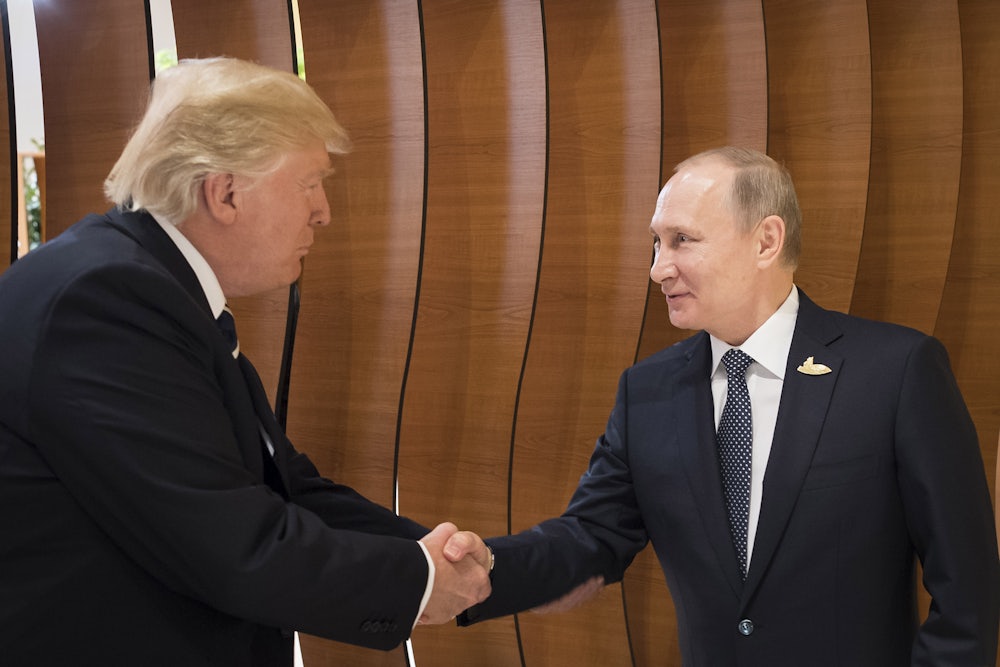Trump and Putin finally met on Friday. Their first handshake, given Trump’s track record, was surprisingly yank-free.
Trump gives Putin a pat on the back pic.twitter.com/qyaVZHU9e8
— Bradd Jaffy (@BraddJaffy) July 7, 2017
Despite the consensus that Russian interference in the 2016 election helped elect him, Trump has been steadfast in his pledge to push for better relations with Putin and Russia. Predicting what Trump is going to do is a fool’s errand, but there’s reason to believe he will push for greater cooperation in the fight against ISIS—and perhaps even make a (rather convoluted) deal to firm up a unified strategy in Syria.
Trump may genuinely believe that teaming up with Putin is the best bet to stabilize Syria. He may believe, as Steve Bannon seems to, that teaming up with Russia is necessary to win the “fight for our beliefs against this new barbarity that’s starting, that will completely eradicate everything that we’ve been bequeathed over the last 2,000, 2,500 years.” But he has absolutely no leverage in this meeting.
Putin is looking at what is almost surely a win-win. If the talks fizzle—always a safe bet—he can make the argument that the U.S. president wants better relations with Russia but that domestic politics and the deep state just won’t let it happen. And the fact that the G-20 meeting has shown the growing gulf between the United States and its allies in Western Europe means that the conference has already been a success for Russia.
But if they do make a deal—in spite of Crimea and Syria and the 2016 election—it will be on Putin’s terms. He can rightfully argue that the United States has come around to his approach to foreign policy and will undoubtedly see it as a green light for other territorial excursions, whether they be in the Baltics or elsewhere.
If Trump were to bring up Russian interference in the 2016 election, that would change the calculus. It would make the prospect of any deal more unlikely, but it would also take leverage away from Putin. But Trump, the master-negotiator, has shown no sign that he will do that.
